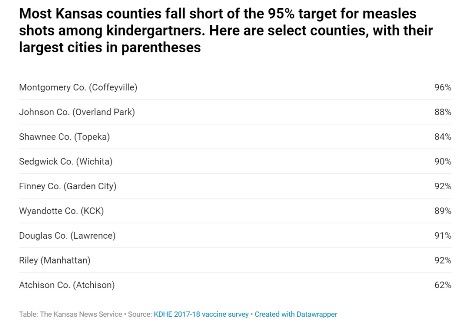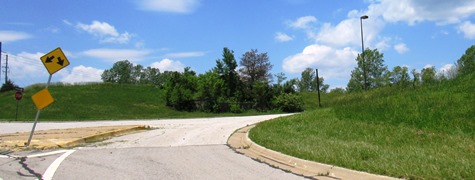
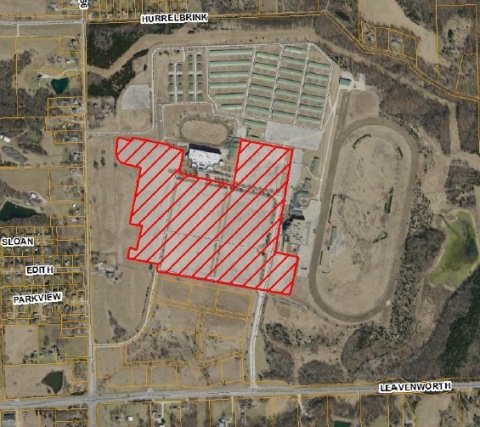
The Woodlands, a facility at 9700 Leavenworth Road that closed its horse and dog track in August 2008, received approval Thursday to renew its special use permit to park vehicles temporarily at its parking lot. There was a little bit of pre-holiday fireworks over it at the Thursday Unified Government Commission meeting.
Originally the UG staff proposed to revoke The Woodlands’ permit because of residents’ complaints of cars driving through the neighborhood without licenses; instead there are new stipulations that vehicles be allowed to drive to the site with proper state documentation that they can drive on the roads, or by transport truck, said Rob Richardson, UG planning director. The issue went back to the Planning Commission, which recommended to keep the permit with the new stipulations.
At a Unified Government Commission meeting on Thursday, June 27, a lawyer representing The Woodlands, Scott Beeler, said there had been no vote taken on a revocation of the permit at the UG Commission level. The permit had been before the UG Commission previously, which sent it back to the Planning Commission. The stipulations discussed were the time vehicles could be delivered or driven to and from the site, from 7:30 a.m. to 7:30 p.m., and how the vehicles could be delivered to the site, Beeler said.
Beeler said The Woodlands has agreed to the UG planning staff stipulation of a maximum 60 semi truck trips per day and up to 420 cars driven there per day.
Beeler said there were more stipulations added by the Planning Commission, but that the Planning Commission should have been limited by law to the directions that were given them by the UG Commission when it sent the item back for more consideration.
He pointed out that a stipulation reads that the hours would be 7:30 a.m. to 7:30 p.m., with the only exception being the security staff changing of shifts. Beeler said that issue of “the only exception” was not taken up by the UG Commission or Planning Commission previously. Beeler said the Woodlands’ general manager goes to the site night and day on a regular basis to make sure things are OK, and he is not security staff.
Beeler objected to a statement that said the UG expected 100 percent compliance with all stipulations, and “close is not sufficient.” He objected that a client could automatically lose its property rights and values if an employee would interpret that something is a violation. “That was not a stipulation of this body; we’ve not even come under a vote for revocation, much less should we be under a zero tolerance measure,” Beeler said.
He said this is a large operation that could accommodate as many as 12,000 vehicles a month under these stipulations. “If they’re five minutes earlier or five minutes late, we’re going to hear about it,” he said. “But I can’t agree, and I would hope you would agree to say I can’t agree, to say it’s a 100 percent compliance stipulation.”
He said they understand the expectation of compliance, but when an allegation happens, it may not always be true, and they want the opportunity to come in and state the facts and have the commission vote on the facts.
“What we don’t want and cannot agree to, is that merely because we are alleged to have a technical violation of any sort, that you don’t have any say about it,” he said. “You say, ‘it says right there 100 percent compliance, I guess I have no choice in that vote. I have to vote to revoke.’ That does not belong here.”
He said he believes the UG has not placed that sort of stipulation on any other special use permit, and it doesn’t belong here.
During a public hearing, a resident who lives near The Woodlands said that earlier, the hours were not what was stated, the vehicle numbers were off and methods of transport were inconsistent. She said she would be concerned about a new agreement for the same reasons. She said the city should monitor or ask for reports to verify what is coming in and how it is coming in.
She said the headlights of the vehicles have come in their bedroom windows at night. She also did not like the sounds of the vehicles. At the same time, she also did not want to prevent the vehicle storage business from operating.
Janice Witt, a resident, asked the amount of taxes paid by the property and asked how much funding is coming in from this use to the UG. Officials said nothing directly from this use, but the property taxes are paid, and the permits. The permits are under $1,500, according to UG officials. The appraised value of the property in 2019 was about $9 million, according to officials.
Witt, who ran unsuccessfully for mayor in 2017 and 2013, and for 1st District, at large Commission in 2015, asked if there was no benefit to the UG from this, for the inconvenience from the use of this property. Only the property taxes, she was told.
“I think we need to support our small businesses,” Witt said, “but as well as we need to support our small businesses, it’s very important to take care of our citizens.”
The resident was asking for a wall and a berm, she noted. “I am asking the wall for the citizen be allowed to be built,” Witt said. She asked that the trucks stop.
Another resident on Donahoo Road spoke in opposition, and said the track had appealed its taxes. She said tractor-trailers storage was not part of the original proposal. She said she would like more proof of whether the vehicles are insured and whether the state approves whether the vehicles can be on the road. She said bars that violate their operating hours will get “zapped” if they are not in 100 percent compliance, and The Woodlands should be. “If you let them say 7:45, they’re going to take it to 8:45,” she said.
Another Donahoo Road resident said they wouldn’t be there if the contracts were lived up to in the beginning. “I think it’s a good faith effort to try to live up to those things and not to come and make excuses to you as to why these things can’t happen,” he said. “Keep your word.”
He said the transport company has never been seen at these meetings, and should have been there. He questioned doing this special permit again.
Beeler said the question of UPS truck and tractor-trailer storage has never been part of the application, and was withdrawn before the first hearing. He said they have already agreed to stipulations that the vehicles stored there will have the appropriate paperwork, including insurance. A license plate is not required, he said, and the vehicles will have paperwork that is required. He said they would do everything in their power to make sure the stipulations are adhered to, including by third-party companies.
Commissioner Mike Kane said he thinks it’s a good idea to build a berm with bushes so the nearby resident wouldn’t have light coming into her room.
Beeler said the 7:30 a.m. to 7:30 p.m. change was done to make sure everything would take place in daylight hours, so that there would not be a concern about cars shining lights in her windows.
Commissioner Kane said in the winter it’s still dark at 7:30 p.m. He said the berm should be in the stipulations. “We have the right to modify what they (the Planning Commission) say,” Commissioner Kane said.
Beeler suggested the UG could not order a member of the public to pay for an improvement on another public person’s property.
“I’ve been here 14 years and we’ve modified a lot of this for 14 years, and I don’t want to argue with you, but what I do want to tell you is in order to make this pass with the least amount of pain, I’m making that suggestion,” Commissioner Kane said. “As it comes around, it will probably be a motion. I don’t agree with what you’ve said. We’ve made modifications on multiple things around here forever and we always will, because we want to make sure you get what you want and the people get what they want.”
Richardson said they have required some improvements on other properties in the past, and some other cities have as well.
Commissioner Melissa Bynum said she agreed that the general manager of The Woodlands needs to be allowed to be on the site when he needs to be there. Richardson said they would consider the general manager to be part of the security staff for the site. Beeler said he agrees, he just wanted it clear that if management was there, it would be accepted.
Commissioner Gayle Townsend asked who would have to agree to the berm. Richardson said with a stipulation, they didn’t have to agree, they just had to do it.
Commissioner Kane’s motion, to accept the Planning Commission’s stipulations with the addition of a berm and bushes, was approved by a vote of 9-0. The motion included the 100 percent compliance phrase.
The Woodlands had been approved previously by the state for slot machines, but it did not agree with the amount of money it would be allowed to keep. The horse and dog track closed in 2008 and it has been waiting for the Legislature to increase the amount of money it could keep from slots operations.
Human Relations and Disabilities Issues ordinance amended
The UG Commission also passed a change for the Commission on Human Relations and Disabilities Issues ordinance, amending it to include the words “all sexual orientations and genders.” Also, the UG Commission passed an amendment defining a quorum for the human relations commission. There was no discussion about the amendments.
Candidates challenge appointment
In other action, some candidates for public office challenged an appointment on the Thursday night agenda.
The appointment of Matt Warner to the UG Board of Park Commissioners by 3rd District Commissioner Ann Murguia was opposed by Tscher (CeCe) Manck, who is running for Wyandotte County Register of Deeds; Faith Rivera, who is running for Board of Public Utilities at large, position 3; and Diana Aguirre, who is running for the 6th District, UG Commissioner position. They alleged a conflict of interest.
The appointment was approved by the commission, 8-1. Warner is with Metro 24, which is running a fitness program on the west side of the Amayo Argentine Recreation Center, 2810 Metropolitan Ave.
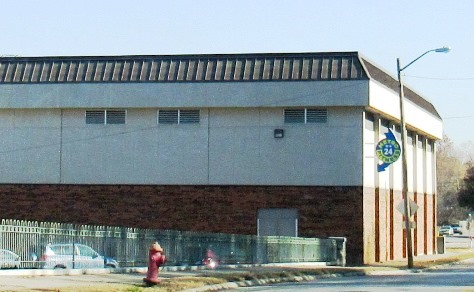
The UG Commission approved the program earlier with Metro 24. UG Commissioner Ann Murguia had earlier done a survey that stated residents wanted a fitness center. She tried to get funding for the fitness center through the UG as a program, but was told by the UG administration that funding wasn’t available. She then sought a private program that could run a fitness center at the recreation center. She helped raise private funding for the fitness center, according to previous news stories. The fitness center charges $19.99 a month to participating residents.
Last November the Argentine center reported 970 members, as compared to the previous 88 persons using the gym before the fitness center was built. There were already a number of outside organizations that come in and offer programs at other community centers.
“We have been previously, from March until now, and currently, fighting, going and petitioning them to take Metro 24 out,” Manck told the commission. “We feel it is unethical for the owner of Metro 24 to vote if his company gets to stay there.”
Mayor David Alvey said members of the park board are simply an advisory board, with no fiduciary power or authority over personnel or scheduling. They simply advise the parks and recreation department, he said.
Misty Brown, a UG attorney, said the parks board is an advisory board to the UG Commission. While they may vote on what they will advise the commission, they have no fiduciary responsibilities, they don’t vote on who would stay in the facility or if Metro 24 would be in the facility or not, she said. The parks board gives advice to the parks and recreation department on how they think things should be done, but what they believe or what they feel should be a policy is subject to the authority of the UG Commission, she said.
Faith Rivera, of the Rosedale neighborhood, asked the commission, “please don’t do this.”
“This is not what our community wants,” she said.
UG Administrator Doug Bach said there have been previous rulings regarding ethics that stated as long as there is a bid or a request for proposals process that the UG conducts, it’s allowable for even elected commissioners to participate and bid for an item. The elected or appointed commissioners or board members do not vote on the item.
“It doesn’t matter. The community has spoken,” Rivera told Bach. “We don’t want this.”
“You’re tainting the UG and you keep tainting it,” Rivera said. “If you guys don’t see it and we’re telling you and we’re asking you not to do it.”
“It’s also possible that we simply disagree,” Mayor Alvey said.
Carolyn Wyatt, a member of the park board, said she thinks it is a conflict of interest for Warner to be on the board, because they take votes. Someone who is making an income or being paid makes a conflict of interest, she said. She encouraged the commissioners to see what is happening in the community. Centers are underfunded, she said. “For profit is not for us,” she said. She said she was concerned about kids having a place to go.
Diana Aguirre, who has volunteered many years with youth at the recreation center, said they made a complaint with the UG Ethics Commission that it was unethical to appoint the owner of a for-profit company in a nonexempt building.
“You have people out there who are really concerned about you taking away those community centers,” Aguirre told the commission. “You can’t privatize and keep a tax-exempt building at one time. It isn’t right. That’s why you guys have to reapply for tax exemption.”
Janice Witt, a resident, asked if they were aware that the ethics administrator asked that the vote be tabled.
Bach said he spoke with the legislative auditor and the ethics administrator. After she reviewed the information given to her, the ethics administrator agreed there was no conflict in this, based on past ethics rules that have been in place, and agreed to move forward with the action at hand, although she said she would take a look at it, Bach said. There are previous ethics opinions on this that show there is no conflict of interest.
Bach said the ethics administrator sent something over asking about tabling the vote, then they informed her of the situation, reviewed the situation and she agreed that moving forward with the appointment would be the right move to make, and then said she would take a look at it, also.
“This thing kind of looks dirty,” Witt said. “You know what, it just doesn’t pass the smell test that this guy is being put on a board that will allow him to vote on benefits that fall directly to him.”
She asked the UG Commission to reconsider it, and asked Mayor Alvey to be more active in making sure people don’t view the commission as a bully pulpit or a joke.
“There are things in place right now, there are recall elections,” said Witt, who ran unsuccessfully for mayor in 2013 and 2017. “If you can’t get the thing under control, then the people have the right and the authority to petition for a recall. I would hate to see that happen. I would love to see you finish out your term and see what we come up with. … If there was any question from the ethics commission or ethics chair, it should have all gone away and then we all talked about it again when we came back to play on a better day.”
Just being on the parks board doesn’t mean that a board member will vote on an issue concerning his financial interests. Brown, the UG attorney, said if Warner is appointed to the park board he would have to recuse himself from any votes that he might have a financial interest in. It’s not as if he could go and vote to do anything to benefit himself, just the same as all the UG commissioners have to recuse themselves in those situations, she said.
Mayor Alvey said if there are any concerns that the ethics administrator finds, they would have to abide by those. “We cannot do anything more than that, we cannot do anything less than that,” Mayor Alvey said.
Commissioner Tom Burroughs said there was a melding of two issues, that the Metro 24 is using a public facility, and the appointment of an individual to the park board. This action was only about the appointment of an individual to the parks board, not a resolution of the issue of Metro 24 in a public facility.
Commissioner Bynum said it would be good to have training sessions to understand the parks board, their powers and duties, the community centers and the appointments. She said she read through the 2018 parks board minutes, and the only votes she could see were to approve the agenda and to approve the minutes, with no other votes taken by the parks board in 2018.
Commissioner Burroughs asked if the appointments vote could be divided into individual names, and was told by the UG attorney they couldn’t do it. Then he made a motion to table the appointments until they heard back from the ethics administrator, since there has been an ethics request. However, that motion was not approved, 5 no votes to 4 yes votes.
At that point the commission voted 8-1 to approve the appointments as proposed, with Commissioner Burroughs voting no.
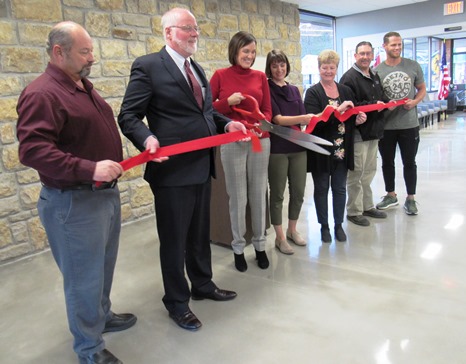
To see an earlier story about the Argentine Recreation Center, visit https://wyandotteonline.com/renovations-completed-at-amayo-recreation-center-in-argentine/
This meeting is online at https://www.youtube.com/watch?v=l4ShLRvre18.

